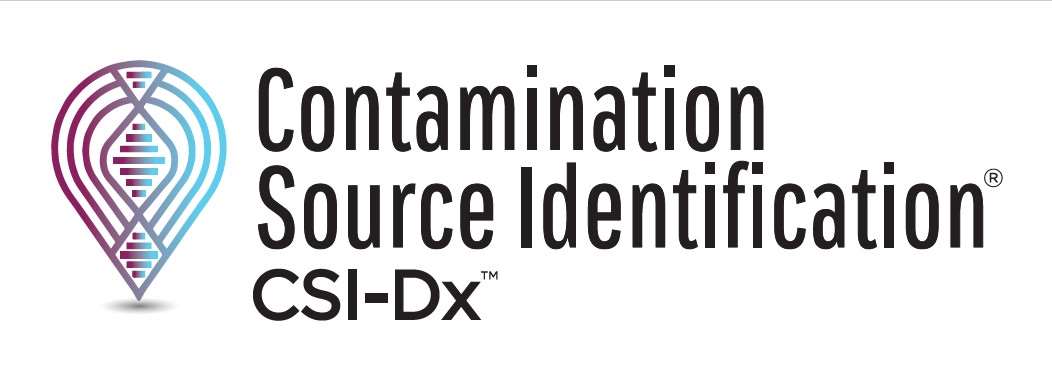Nestled among the dairy farms of central Pennsylvania lies the town of Huntington. Home to just over 7,000 residents, it’s a surprising place to find a CLIA-certified testing lab such as Contamination Source Identification (CSI). The local community members consider themselves fortunate to have such a facility nearby to help them fight COVID-19.
CSI’s team of computational experts, molecular biologists, bioinformaticists and researchers are currently focused on developing a cutting-edge genomics testing platform designed for the detection of tickborne disease such as Lyme Disease. However, when COVID-19 began aggressively spreading throughout the United States in March 2020, CSI sought to aid the local community by serving as a local COVID-19 testing lab.
In an effort to respond to the pandemic quickly, CSI needed to develop a fast, secure and HIPAA compliant way to collect test orders and patient data when processing COVID-19 detection tests. Additionally, they needed a data collection solution that permitted integration into their customized Lab Information Management System (LIMS).
Creating a HIPAA-Compliant Interface - Fast
After weighing several options, CSI chose to build their data collection tool within Cognito Forms. The platform’s combination of HIPAA compliance, regular expressions and field validation enabled the team to rapidly develop and deploy a system in which CSI and their referring physicians would have confidence.

Using CSI’s system, physicians can easily enter patient data directly into the Cognito Form, knowing that the personal information will be secure during transmission and storage. The CSI team then imports the data into CSI’s LIMS platform, where test results are recorded and reported back to the ordering physician.
“Since physicians are entering the data themselves, we can trust that data entry is as efficient, accurate and reliable as it can be,” explains Bioinformatics Lead Colin Brislawn. “Using Cognito Forms built-in field validation alongside a regular expression to validate barcoded data, we’re confidently able to process a large volume of tests, while accurately and securely controlling the associated sample and patient data.”
Brislawn adds that the team also relies on the global unique field in Cognito Forms to help maintain data integrity. “It’s something we’ve found no other form provider providing. With samples coming in from many different physician practices, this eliminates the possibility of any samples having duplicate identifiers.”
Reaching an Underserved Community
As part of their efforts to provide rapid detection and diagnosis of COVID-19, CSI’s laboratory director Holmes Morton, MD, PhD, established a unique horse-and-buggy drive-through for COVID-19 testing.
This approach enabled Dr. Morton to reach the area’s Amish and Mennonite populations. While many of these families do not own automobiles, they can still enjoy convenient access to advanced medical testing during the pandemic.
“Serving our local community as the only available COVID testing site has been an incredibly rewarding experience at CSI. While we are working hard on furthering our proprietary Next Generation Sequencing technology and bioinformatics techniques, it has been an honor to provide rapid diagnostic COVID-19 testing to over 25 institutions including nursing homes, college universities, and medical clinics in our area.” ~ Justin Wright, Co-Founder and Executive Vice President of Data Analytics at CSI.
As of the writing of this article, CSI has performed more than 50,000 COVID-19 tests. They’ve also received national attention in CNN and Vice News for their successful approach in assisting the underserved Amish and Mennonite communities.
Having achieved success with their first Cognito Forms experience, the team is exploring how they can use the platform to accelerate other processes.
Working Fast to Stay Ahead of Pathogens
CSI is currently customizing their customer order experience via Cognito Forms to facilitate sample processing of their proprietary CSI-Dx™ diagnostic test system.
The CSI-Dx™ testing platform targets pathogenic RNA to deliver comprehensive accurate pathogen detection results in a short timeframe. The CSI-Dx™ TickBorne test is currently being clinically validated to diagnose tickborne pathogens in clinical urine specimens. Additionally, the CSI team is working on the development of CSI-Dx™ Surface Test, which leverages the CSI-Dx™ technology for non-diagnostic screening of active microbes on surfaces in high-traffic locations.
This type of surface testing could be a game changer
CSI Executive Vice President and Bioinformaticist Justin Wright
“This type of surface testing could be a game changer,” explains Executive Vice President and Bioinformaticist Justin Wright. “We can identify comprehensive pathogenic microbial communities on any surface, including critical high-touch surfaces in operating rooms, or even high-traffic high-density areas such as airport terminals or train stations.” CSI is currently engaged in a multi-hospital validation study funded by the Department of Defense to validate the performance of the CSI-Dx™ Surface Test.
About Contamination Source Identification
Contamination Source Identification (CSI®) provides their customers with accurate active pathogen identification to enable confident disease diagnosis and targeted treatment decisions that encompass all infective pathogens.
Operating out of the Juniata College Center for Entrepreneurial Leadership (JCEL), CSI enables faster identification turn-around times that improve physicians’ ability to deliver accurate treatment earlier, preventing the disease from developing additional symptoms and long-term effects.
Learn more about CSI at www.CSIdx.com.